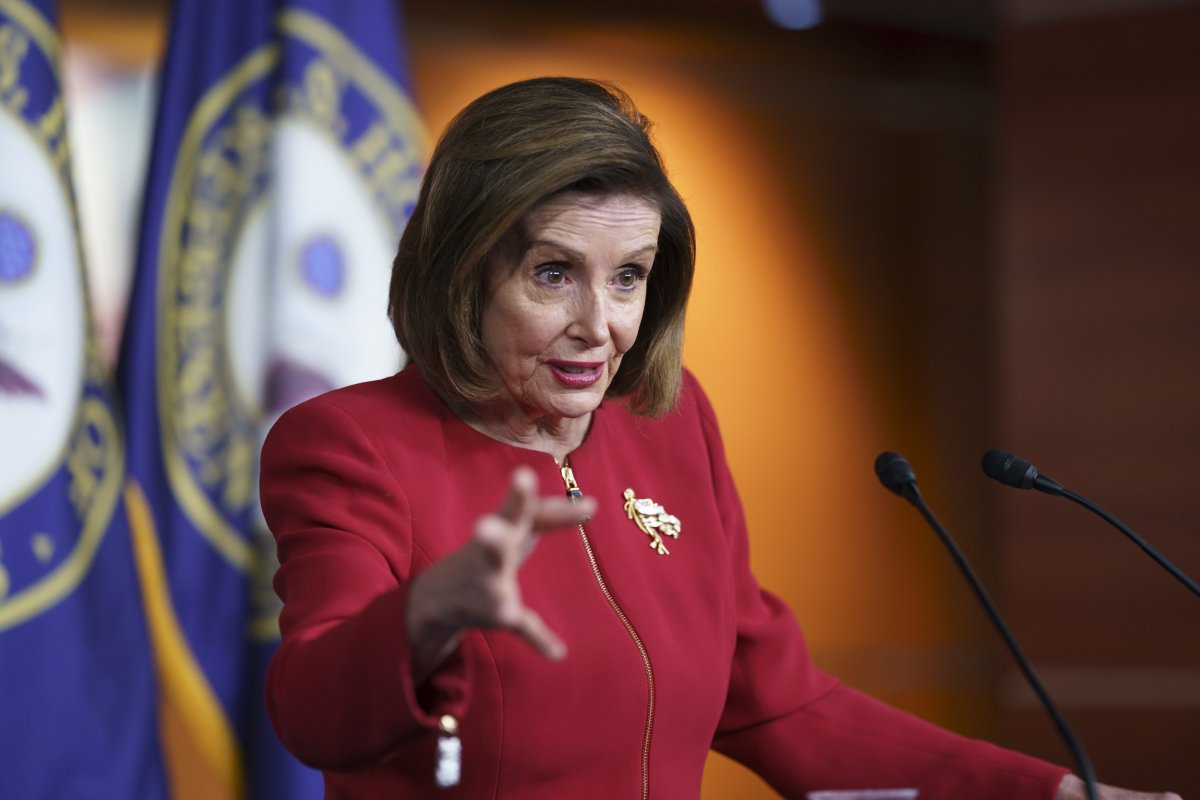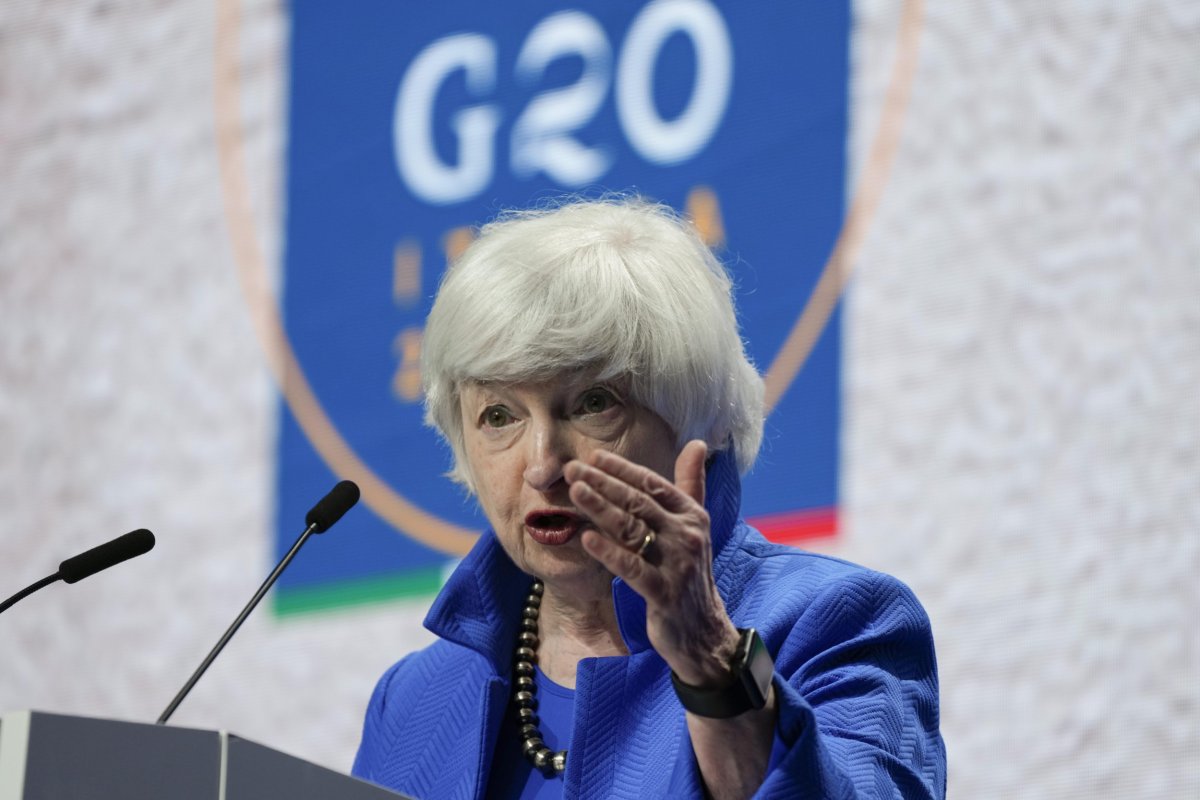As the deadline looms to raise the U.S. debt limit and fund the government before the end of the fiscal year, Democrats and Republicans remain locked in a stalemate that could result in a federal shutdown, the Associated Press reported. Democratic leaders announced Monday that they would move forward on both fronts with a vote while calling on their Republican counterparts to help the measures progress.
"The American people expect our Republican colleagues to live up to their responsibilities and make good on the debts they proudly helped incur," wrote House Speaker Nancy Pelosi and Senate Democratic leader Chuck Schumer in a statement.
This week's vote on funding is crucial in keeping the government running after September 30, when the fiscal year concludes, the AP reported. Raising the debt limit is also essential, and once a routine step in the U.S. government, but Republicans looking to regain the congressional majority in 2022 have opted to leave both jobs in the hands of Democrats who may or may not have the necessary votes.
For more reporting from the Associated Press, see below.

The funding package is expected to keep most spending at its current levels on a stopgap basis through the end of the year and include supplemental funds for the aftermath of Hurricane Ida and other natural disasters, as well as money to help defray the evacuations from Afghanistan. Tacking on legislative language to allow more borrowing to cover the nation's debt payments through 2022 sets the stage for a showdown.
The Treasury Department warned that it will soon run out of cash-on-hand, and have to rely on incoming receipts to pay its obligations, now at $28.4 trillion. That could force the Treasury to delay or miss payments, a devastating situation.
"Doing so would likely precipitate a historic financial crisis," wrote Treasury Secretary Janet Yellen in the Wall Street Journal.
Once a routine matter, lifting the debt ceiling has become a political weapon of choice for Republicans ever since the 2011 arrival of tea party lawmakers who refused to lift it. At the time, they argued against more spending and the standoff triggered a fiscal crisis.
Echoing that strategy, Senate Republican leader Mitch McConnell says he's not about to help pay off debts when Biden is about to pile on more with a "reckless" tax and spending package.
"Since Democrats decided to go it alone, they will not get Senate Republicans' help with raising the debt limit. I've explained this clearly and consistently for over two months," McConnell said Monday on the Senate floor.
Backed by the White House, Pelosi counters that when McConnell was in control of the Senate he relied on Democratic votes to help raise the debt ceiling during the past administration and she expects the same from him now.
"The debt limit is a shared responsibility, and I urge Congress to come together," Pelosi said in a letter late Sunday to colleagues.
Schumer said raising the debt ceiling is necessary to meet the country's past commitments, and "what Republicans are doing is nothing short of a dine-and-dash of historic proportions."
Meanwhile, behind the scenes, Democrats are negotiating among themselves over Biden's big $3.5 trillion package as the price tag likely slips to win over skeptical centrist lawmakers who view it as too much.
The size and scope of Biden's "Build Back Better" initiative cannot be overstated. It touches almost all aspects of Americans' lives.
Biden's plan aims to not just rebuild the country after the COVID-19 crisis and economic fallout, but begin to change longstanding federal spending patterns in ways that provide more services to more Americans and attempt to level the growing income inequality that permeates the economy.
The proposal would impose tax hikes on corporations and wealthy Americans earning beyond $400,000 a year and plow that money back into federal programs for young and old. It would increase and expand government health, education and family support programs for households, children and seniors, and boost environmental infrastructure programs to fight climate change.
One topic the bill may not cover is immigration after the Senate parliamentarian advised that Biden's proposal would not pass the chamber's rules for consideration under the budget process.
With Republicans opposed in lockstep to Biden's sweeping vision, Democrats have no votes to spare. As Democrats try to rally support from their own ranks, they have only the most narrow control of Congress as the majority, with a 50-50 Senate and just a few votes' margin in the House.
Pelosi and her leadership team are expected to huddle at the start of the week, and Senate Democrats are meeting as well, as they craft the details of the package ahead of a self-imposed deadline.
By September 27, Pelosi has promised a vote on a companion bill, a $1 trillion bipartisan infrastructure bill of public works projects that enjoys widespread support from both parties in the Senate, though House Republicans mostly oppose it.
Even though that bipartisan bill should be an easy legislative lift, it too faces a political obstacle course ahead. Dozens of lawmakers in the Congressional Progressive Caucus are expected to vote against it if it comes ahead of the broader Biden package. But centrists won't vote for the broader package unless they are assured the bipartisan bill will also be included.

Uncommon Knowledge
Newsweek is committed to challenging conventional wisdom and finding connections in the search for common ground.
Newsweek is committed to challenging conventional wisdom and finding connections in the search for common ground.
About the writer
Zoe Strozewski is a Newsweek reporter based in New Jersey. Her focus is reporting on U.S. and global politics. Zoe ... Read more
To read how Newsweek uses AI as a newsroom tool, Click here.








